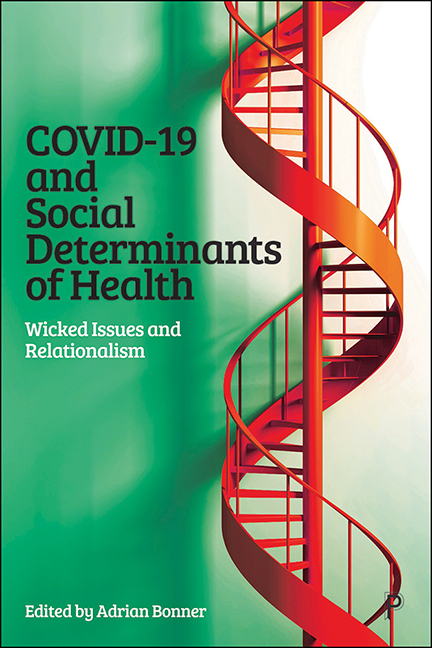Book contents
- Frontmatter
- Miscellaneous Frontmatter
- Contents
- List of figures and tables
- Notes on contributors
- Foreword
- Introduction
- Part I Wicked issues and relationalism
- Part II Regionalism and geopolitical environments
- Part III Public sector, COVID-19 and culture change
- Part IV The third sector
- Part V The case for relationalism
- Part VI Engagement and proposed changes
- Conclusion
- Appendix The Centre for Partnering
- Index
11 - Housing policy and provision after COVID-19
Published online by Cambridge University Press: 18 January 2024
- Frontmatter
- Miscellaneous Frontmatter
- Contents
- List of figures and tables
- Notes on contributors
- Foreword
- Introduction
- Part I Wicked issues and relationalism
- Part II Regionalism and geopolitical environments
- Part III Public sector, COVID-19 and culture change
- Part IV The third sector
- Part V The case for relationalism
- Part VI Engagement and proposed changes
- Conclusion
- Appendix The Centre for Partnering
- Index
Summary
Introduction
Adequate housing and shelter are undeniably a key factor in the social determinants of the health of the population, and the distribution of health inequality in the UK. The UK, and England in particular, is a densely populated nation and apart from agriculture, housing is the biggest user of land. Making cities and human settlements inclusive, safe, resilient and sustainable is the 11th Sustainable Development Goal of the United Nations. The latter sits alongside, inter alia, good health and wellbeing, quality education, decent work and the reduction of poverty and inequality, all of which are influenced by the quality and availability of domestic accommodation.
Housing is also an intrinsic part of the debate about how to tackle and reduce the factors generating climate change and the nature and control of energy. More recently, the physical layout and space standards of property and the family and social structures of those occupying domestic properties has been a key influence of the spread of the COVID-19 pandemic. As security of employment in the UK has weakened, investments in housing have increasingly been perceived as a ‘safe haven’ or buttress to increasing income insecurity and inadequate state assistance in provision for old age. The economic challenges of Brexit, the global pandemic and the emergence of more authoritarian regimes is exacerbating feelings of insecurity and falling confidence thus increasing already prevalent mental health issues (NHS Digital, 2021).
The complex multidimensional influences that housing has on the health and wellbeing of citizens is evident in the short-, medium- and long-term issues exemplified by the annual winter homeless crises, the response to COVID-19 and the need for long-term social and economic policies to avert the climate crises. This myriad of influences, reciprocities and interrelationships suggest and, in my view require, a comprehensive holistic analysis and a joined-up policy response to housing provision in the UK in the future. Our goal should be to provide appropriate types of accommodation across a range of tenures, for increasingly diverse social and family relationships within a national stock of accommodation.
To start on this long-term ambition, we need to take a comprehensive and holistic approach to evaluating what the country needs to provide in terms of its housing.
- Type
- Chapter
- Information
- COVID-19 and Social Determinants of HealthWicked Issues and Relationalism, pp. 210 - 229Publisher: Bristol University PressPrint publication year: 2023



